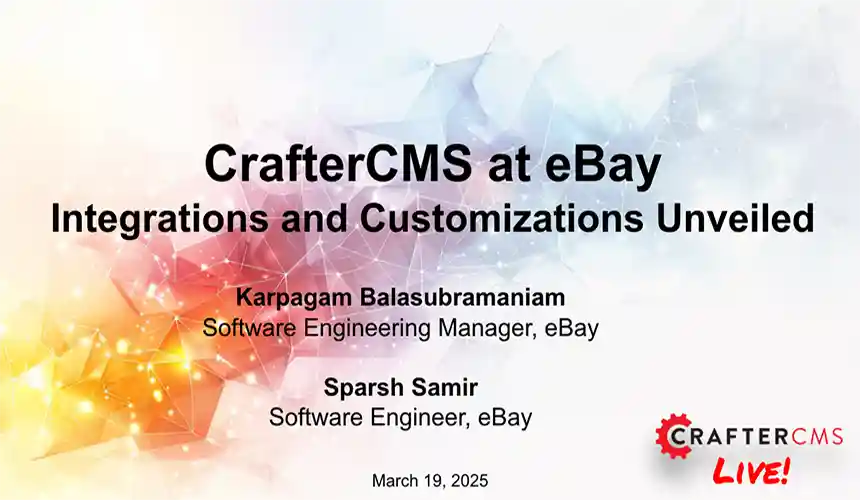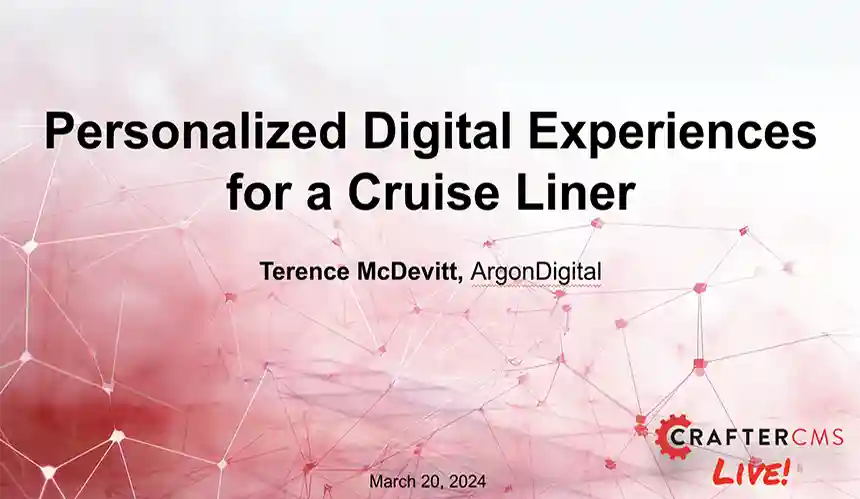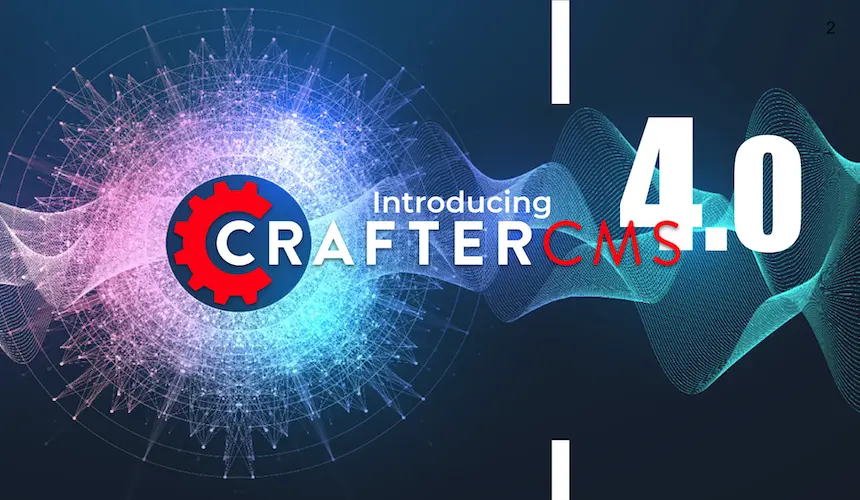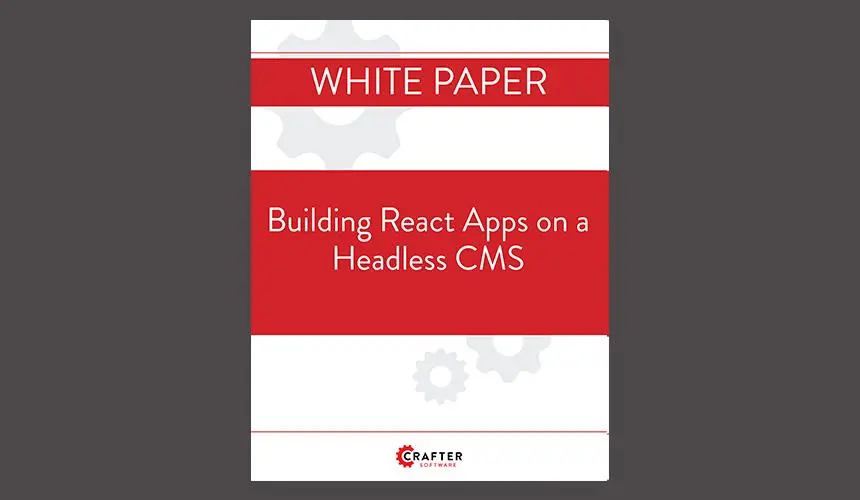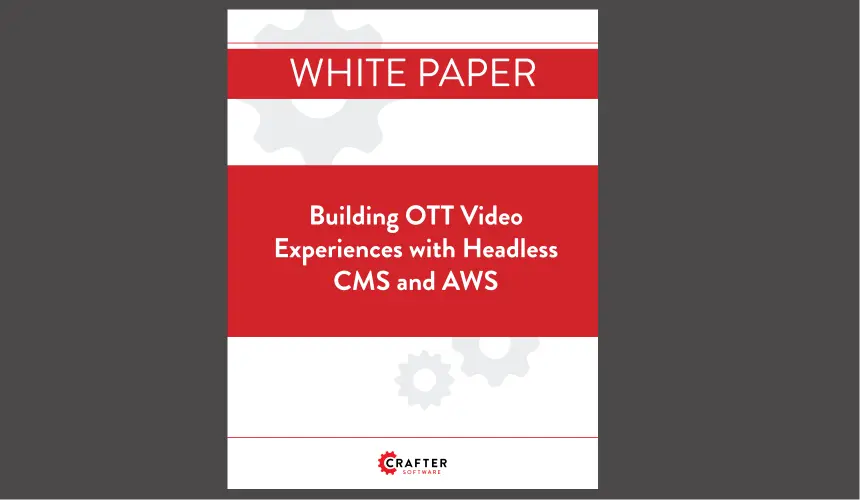Headless CMS on Google Cloud: What You Need To Know

Sara Williams

Cloud technologies have promised to provide the foundation of adaptability, scalability, and innovation that enterprises need to meet ever-growing customer expectations. Businesses evaluating modern CMSs should consider a cloud-native CMS that can be deployed to the cloud to reap those benefits, achieve global content delivery, and reach a wider audience.
Google Cloud is one of the Big 3 cloud service providers and continues to earn more market share as companies move their infrastructure to the cloud. In this blog, we’ll explore Google Cloud’s content management services and the benefits of hosting a headless CMS on the Google Cloud Platform.
What Is Google Cloud?
Google Cloud, or Google Cloud Platform (GCP), is a suite of cloud computing services offered by Google. It provides computing, storage, analytics, AI, machine learning, and other cloud services enabling companies to access computing resources in Google data centers worldwide.
Like other cloud computing services, GCP is used by millions of companies around the world, drawing on Google’s computing power and big data processing capabilities as well as its renowned global brand. While third among the largest cloud service providers with 11% of total market share as of Q1 2023, GCP has also been among the fastest growing, nearly doubling from its 6% market share at the end of 2017.
GCP has become a notable cloud provider option for today’s enterprises, making it a common choice for deploying a CMS to the cloud.
What Is a Google Cloud CMS?
A Google Cloud CMS is a content management system hosted on the Google Cloud Platform. Like any cloud-native or SaaS CMS, it allows enterprise teams to access the software remotely from anywhere in the world. Since updates and infrastructure are managed by the vendor, this can also improve scalability, flexibility, reliability, and security.
What Is a Headless CMS on Google Cloud?
A headless CMS on Google Cloud takes the capabilities of a headless content services platform, where the content management backend is separated from the frontend presentation layer and places it on the cloud.
This enables organizations to deliver content to any channel they require, whether that be a website, mobile app, e-commerce app, intranet, portal, OTT video experience, AR/VR app, or digital signage.
Businesses can also reach a global audience and appeal to a greater customer base with the scalability a headless CMS on GCP offers. They can scale up or down to meet traffic demand across multiple regions.
Google Cloud Services for Content Management
Google Cloud Platform offers a variety of services that are ideal for content management use cases. They include:
- Google Cloud Storage: Scalable object storage for any content, including media files, documents, and images.
- Google Cloud SQL: A managed relational database service for MySQL, PostgreSQL, and SQL Server.
- Google Kubernetes Engine (GKE): A managed Kubernetes service for deploying, managing, and scaling containerized applications.
- Google App Engine: GCP’s platform-as-a-service (PaaS) solution for building and deploying scalable web applications without managing the underlying infrastructure.
- Google Compute Engine: GCP’s infrastructure-as-a-service (IaaS) provides virtual machines for custom workloads.
- Google Cloud Functions: A serverless computing service running event-driven functions to extend CMS functionality.
- Google BigQuery: A fully managed, serverless data warehouse for large-scale data analytics to gain insights from CMS data.
- Google Cloud CDN: Content delivery network for delivering content with low latency and high transfer speeds globally.
Benefits of Google Cloud Platform For Hosting a Headless CMS
Enterprises considering hosting their CMS on Google Cloud, whether due to the need to migrate from a legacy on-premises solution or simply because they’re already using GCP for other applications, will realize several benefits from hosting a CMS on GCP.
Data Analytics and Machine Learning
Enterprises that focus heavily on data analysis and machine learning will benefit from choosing GCP, as this is where the cloud provider shines. Google Cloud’s BigQuery is a powerful, fully managed data warehouse that enables super-fast SQL queries.
GCP also integrates with advanced machine learning and AI tools like TensorFlow. With AI becoming increasingly important in content management, GCP can help support CMS features such as personalization, image recognition, and more.
Custom Machine Types
Google Cloud allows for creating custom machine types tailored to specific workload requirements, enabling precise resource allocation and potentially reducing costs by avoiding over-provisioning.
Anthos
Google’s Anthos provides a unified management platform for applications running on-premises or across multiple clouds, allowing for hybrid and multi-cloud deployment and management of your CMS with consistent operations.
Global Performance
Google’s network infrastructure and the Google CDN offer low latency and high availability, crucial for delivering content quickly and reliably to customers worldwide.
Cost-Effectiveness
GCP’s billing structure is different from AWS and Azure and often includes sustained use discounts. These discounts automatically apply the longer you use their services without needing upfront commitments.
Characteristics of a CMS For Google Cloud
Enterprises on the hunt for a CMS that can be deployed effectively on Google Cloud should ensure that it includes the following characteristics:
Cloud-Native
A Google Cloud CMS must be cloud-native, meaning it is designed specifically for cloud deployments from the outset. This includes employing a microservices architecture and offering support for containerization.
Elastic Scalability
Achieving high-quality global performance means that a Google Cloud CMS needs an elastic architecture. This allows the CMS to dynamically allocate resources based on traffic and performance needs, ensuring optimal efficiency and responsiveness.
Stateless & Serverless
A stateless architecture allows separate application instances to operate independently, facilitating the deployment of content services without the need for complex synchronization or shared resources. Stateless and serverless designs can be managed with minimal IT involvement, with most operations being automated.
CrafterCMS: A Headless CMS For Google Cloud Platform
CrafterCMS offers a robust headless CMS for the enterprise that can be deployed on Google Cloud. Whereas some SaaS CMSs may limit where enterprises can deploy their software, CrafterCMS Enterprise is a fully supported, self-managed/self-hosted solution that can be deployed on any public or private cloud.
Deploying on Google Cloud Platform
As a self-hosted/self-managed solution, CrafterCMS Enterprise provides a flexible deployment model tailored to each organization’s specific needs. The only slight limitation is the storage mechanism for large files, where CrafterCMS utilizes Amazon S3 by default for bucket storage. However, this has become an industry standard practice, and Google Cloud Platform (GCP) offers an S3-compatible storage interface, allowing organizations to achieve the same advantages with CrafterCMS.
Elastic Scalability
CrafterCMS provides elastic scalability, enabling enterprises to manage rising traffic demands without sacrificing performance. This ensures a smooth user experience even during peak periods.
Composability
CrafterCMS is a composable content platform that integrates seamlessly with other best-of-stack tools. It allows businesses to build and maintain a dynamic digital experience platform (DXP) that adapts to current and future needs.
Plugin Marketplace
The CrafterCMS Marketplace features a variety of pre-built plugins, empowering businesses to swiftly develop new features and create custom plugins that can be reused across websites and applications.
Best-in-Class Headless CMS
With CrafterCMS, content authors can also enjoy best-in-class visual content authoring, and developers can leverage any frontend framework or toolset to create the best digital experiences for their audience.
Get Started
Try CrafterCMS on Google Cloud today. Download the open source community edition of CrafterCMS now, or reach out for a free trial version of the fully-supported CrafterCMS Enterprise.
Related Posts

Headless CMS for QSR: Powering Digital-First Quick Service Restaurants

Amanda Jones

AI Skills for CMS-Based Web Development

Sara Williams

From HTML Template to Fully Managed Experience in Minutes: CrafterCMS + AI-Powered Workflows

Sara Williams

How Should You Structure a Blog Post So AI Models Actually Cite It?

Amanda Jones






